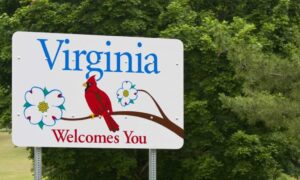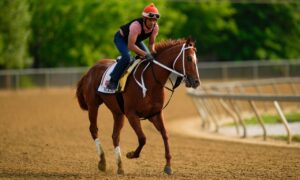
Amid a corruption scandal, lawmakers are aiming to diminish the regulatory powers of the Virginia Charitable Gaming Board.
Last week, House Speaker Todd Gilbert received a letter from four members of the Joint Subcommittee on Charitable Gaming. The letter requested the replacement of specific board members, particularly chairman Chuck Lessin, who is central to the matter.
Last year, Lessin established a poker room within the Richmond Bingo Hall. Subsequently, he ventured into a new business model whereby he provided charities with the opportunity to rent his space for organizing charity poker tournaments.
Nonetheless, the subcommittee members held the belief that simultaneously leading a regulatory agency and managing a business within the same market creates a conflict of interest.
Consequently, there are currently six bills being considered in the legislative pipeline, all aimed at significantly curbing the authority of the Charitable Gaming Board.
The proposed bills aim to strengthen enforcement measures and impose stricter penalties on offenders. Additionally, other proposals seek to subject electronic slot machines to heightened regulatory scrutiny.
In the end, one of the proposed bills aims to completely remove the board’s regulatory authority. Nevertheless, it would permit board members to work collaboratively with state regulators in an advisory capacity, with the intention of preventing additional instances of corruption.
Virginia charitable gaming expansion preceded casino gambling
In 2020, Old Dominion had gained significant momentum in its pursuit of allowing gambling.
Two years ago, the state of Virginia underwent significant changes in its gambling laws. Prior to this, only the state lottery allowed gambling activities. However, former Governor Ralph Northam altered the landscape by signing bills that legalized sports betting. Furthermore, seven months later, the voters of Virginia also granted approval for the establishment of five Las Vegas-style casinos within the state.
Nevertheless, there was no assurance that the ballot initiative, which aimed to introduce casinos to the state, would be approved by the voters. In the meantime, lawmakers passed bills that effectively permitted nonprofit organizations to organize poker tournaments as a means of raising funds.
In the 1970s, the state implemented charitable gaming laws, albeit with stringent regulations. Under these laws, poker and other card games were explicitly banned by legislators in accordance with previous regulations.
The only issue was that lawmakers authorized the expansion of charitable gaming without providing a clear set of regulations for these organizations to follow.
Lack of immediate regulation bred possible corruption, lawsuit
Once the bill was passed, Lessin wasted no time in expanding his ownership to include the Richmond Bingo Hall and its attached sports bar. Without delay, he initiated the necessary steps to incorporate a poker room within the establishment. Moreover, he tirelessly advocated for regulators to promptly commence the issuance of poker licenses.
At the conclusion of 2020, the Charitable Gaming Board, which operated under the Virginia Department of Agriculture and Consumer Services (VDACS), reached an agreement with the commercial gaming board regarding charity regulations. However, numerous charitable organizations had already initiated their fundraising efforts prior to this development.
Lessin filed a lawsuit after VDACS stopped issuing charitable gaming permits in May.
Filing a lawsuit against VDACS, he contended that the absence of explicit regulations indicated that the law permitted gambling. Additionally, he claimed that the regulators should have issued him a permit beforehand since the regulations were already established prior to his venture.
In August, Lessin emerged victorious with a favorable ruling from the judge. As a result, he organized his inaugural poker tournament in Pop’s Poker Room towards the month’s end.
Inspector general wants changes in Virginia charitable gaming
Following Lessin’s victory in the lawsuit, the Office of the State Inspector General (OSIG) conducted an examination of the Charitable Gaming Board’s organizational framework.
A report released by the OSIG in September highlighted concerns regarding the inclusion of Lessin on the board. The report emphasized that actions similar to Lessin’s pose a threat to the regulatory body’s integrity.
The following changes were recommended in the report:
- Please revise the code to guarantee adequate supervision of all gross receipts from charitable gaming.
- Please revise the code to resolve conflicts of interest and ensure consistency among all forms of charitable gaming activities.
- Additionally, modify the code to grant VDACS the power to refuse, temporarily halt, or invalidate permits.
- Please modify the code to manage and enforce the roles of owner, lessor, or lessee in charitable gaming.
- Once the changes to the code and regulations are implemented, it is crucial for VDACS to reassess its staffing levels to guarantee effective oversight and enforcement across the state.
- VDACS should set a specific time frame for the release of charitable gaming applications once regulations have been established.
Lessin claims regulators are the corrupt ones
Charitable gaming organizations had a strong motivation to swiftly obtain a license due to the imminent arrival of commercial casinos in Virginia. With the possibility of these casinos opening this year, charitable businesses were eager to establish their presence in the gaming industry.
According to Lessin, the lawmakers are prioritizing the interests of those companies over Virginia charities, to their detriment. Speaking to a local ABC affiliate, he expressed his belief that the lawmakers’ endeavors are misguided.
In my opinion, the Charitable Gaming Board has faced significant mistreatment, which can largely be attributed to the influence of big money on legislators. This influence has compelled them to attempt shutting down long-standing charitable activities.
Hard Rock Casino and Resort Bristol is set to introduce a temporary gaming floor, most likely within this year, marking a significant milestone as the inaugural commercial casino in the history of Virginia. The complete casino floor will be revealed by Hard Rock in the upcoming year.
In 2025, the Caesars Casino Resort Danville, Rivers Portsmouth Casino Resort, and HeadWaters Resort & Casino in Norfolk are expected to commence operations.
The proposal to introduce a casino in Richmond was rejected by the voters. Nevertheless, the Richmond City Council is making efforts to reintroduce the initiative for consideration in this year’s ballot.






